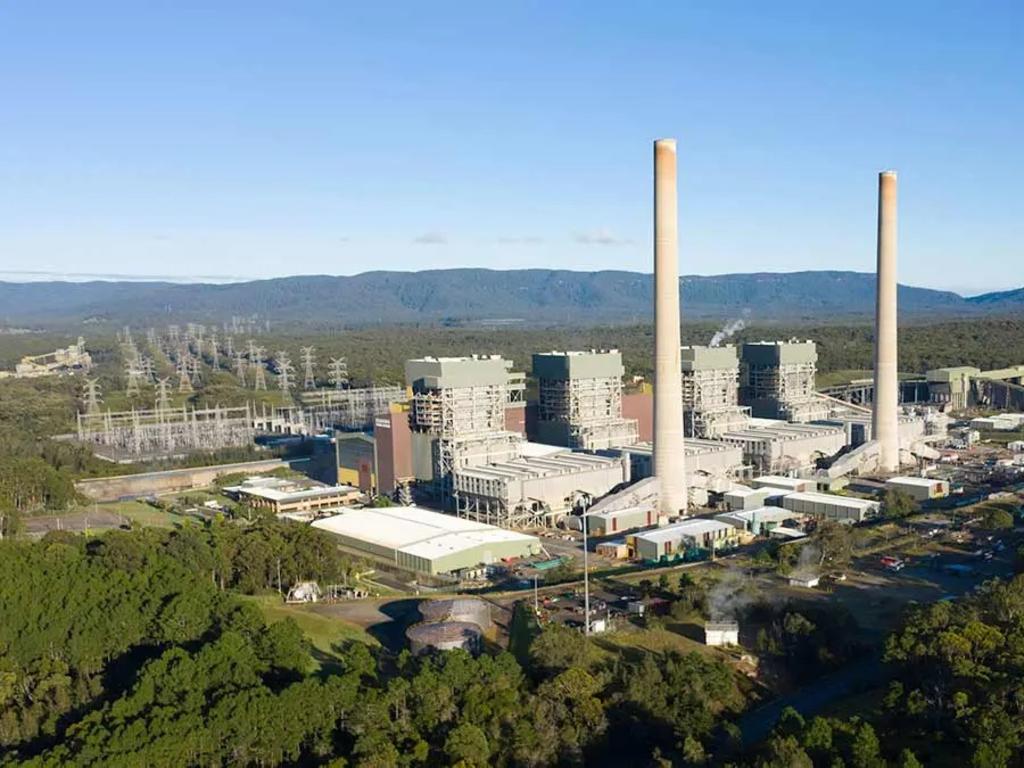NSW-backed extension of Eraring is reward for Origin’s mismanagement, Delta Electricity says
Delta Electricity has slammed the possible extension of coal power station Eraring, as an unjust reward for its owner, Origin Energy’s mismanagement.
Business
Don't miss out on the headlines from Business. Followed categories will be added to My News.
Major coal plant owner Delta Electricity has slammed a pending deal by NSW to extend a rival coal station, saying it amounts to financial reward for the company’s mismanagement of the facility.
The Australian reported on Tuesday that the NSW state Labor government was in talks with Origin over an extension of at least two years and potentially for four years in total of the state’s largest electricity generator.
The possible lifeline has ignited widespread condemnation, despite many acknowledging that allowing the asset to close would heighten the risk of blackouts and price rises.
Joining the chorus of condemnation, Delta Electricity – which operates a rival coal power generator – said its own asset is commercially viable and if Eraring is reliant on taxpayer subsidies, then it amounts to mismanagement by Origin.
“Delta operates the Vales Point Power Station that is both older and smaller than Eraring yet does not require a subsidy to be commercially viable. Delta can only conclude that Origin will be rewarded for the poor management of their assets and NSW Taxpayers will be paying to maintain Origin’s dividends,” Delta said.
“The NSW Government should consider if other operators could run Eraring without the requirement for such subsidies. It would be a significant policy failure if the subsidisation of a competitor threatens the viability of an efficiently run business.”
The anger of Eraring underscores the blowback on the NSW should it formalise an agreement. Revelations over the deal have been condemned by environmentalists and advocates for renewable energy, but Delta’s comments illustrate a view within the industry that the country’s largest energy company has secured what they perceive as an unfair advantage.
Origin announced in 2022 its intention to shutter the plant that generates about a quarter of NSW’s electricity, as the plant is now unprofitable.
Eraring returned to profitability last year with the introduction of a coal price cap, but Origin insists the rise of rooftop solar has made the generator unprofitable in the long-term.
Still, there is suspicion within the industry despite the NSW government likely to have scoured over the financial records of Eraring, and a formal agreement will heighten pressure on the state Labor government and Origin to reveal the financial details for the taxpayer liability.
Details, however, are unlikely to ever be made public.
Similar deals have been struck in Victoria, where the state Labor government entered into agreements with EnergyAustralia and AGL Energy to ensure two coal power stations remained open, and the terms have never been revealed.
Industry sources said the deals are a likely trend, with large generators able to extract financial guarantees from taxpayers by indicating they intend to close.
Delta’s comments also hint it could amend its closure date for its Vales Point coal power station, set to close in 2033 – which make it the last major fossil fuel generator in NSW.
Australian law requires generators to give more than three years notice if they intend to close a coal power station. The federal government and its state counterparts can ill-afford, however, to allow traditional coal power stations to shutter as new renewable energy sources prove stubbornly slow to develop.
To avoid a repeat of the stand-off, states are pushing for new powers that would allow them to determine when a coal generator can close – though this so-called Orderly Exit Framework is opposed by the country’s energy industry – citing mixed signals for developing replacement renewable energy sources.
Originally published as NSW-backed extension of Eraring is reward for Origin’s mismanagement, Delta Electricity says





